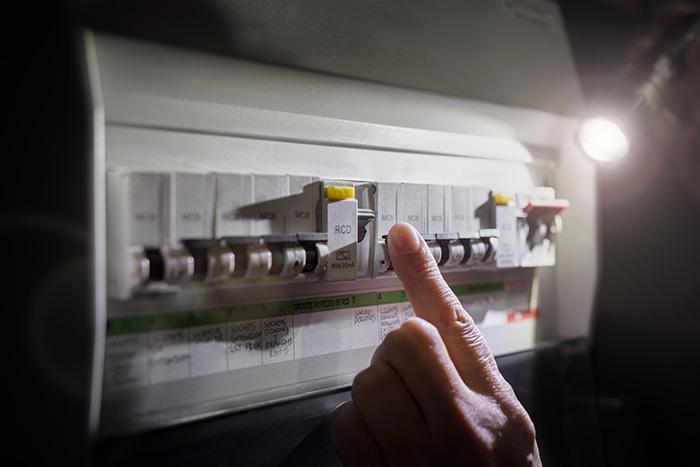Power outages or blackouts are incredibly frustrating and can even be dangerous. Thankfully, they are quite rare in the UK as the national grid and energy infrastructure is very robust. They are not unheard of, however, and there are several different causes and types of power outages.
Extreme weather
Lightning storms and high winds can cause significant damage to the country’s electrical infrastructure. With the number of extreme weather events increasing, damage to hardware is likely to become a more and more prevalent in the future. This can include wind blowing debris which knocks over transmission lines, rain, sleet, and snow flooding substations, and lightning strikes damaging sensitive equipment. These weather events also make it more difficult for technicians and engineers to attend to damage and make repairs, potentially prolonging outages.
Equipment failure
The electrical system in the UK is well developed and highly robust. However, it is not immune to mechanical failure. Faults with components, fires, or software crashes might all be responsible for the lights going out. The issue with these as that they are much harder to anticipate and prepare for. One way you can make your home more resilient against unexpected power cuts like this is to make sure that devices are turned off and ideally unplugged when you’re not using them.
Scheduled maintenance
One of the less dramatic causes for a power outage is scheduled work to repair, refurbish, or maintain the electrical system. This can include work on larger elements like substations but will often be on nearby supply lines like cables and pylons on your street. Find out if there will be a power cut near you so you can plan accordingly. In some cases you may be able to exempt your property if you need to power medical equipment and other essential devices.
Types of power outages
Each of the different electrical outages will affect your home’s electrical system and devices differently. Knowing the differences will make sure you are safe and can react appropriately.
-
Blackouts
A blackout is a complete lost of power to an area and is the most severe type of outage. But what causes a blackout? Blackout causes typically are major damage from violent wind or lightning strikes. This sort of damage can be quite severe and might take several weeks to fully fix.
-
Brownouts
Brownouts are when there is decrease in the voltage or the power supply as a whole. This will cause lights to dim and high-use items like hair dryers and microwaves not to operate. Be careful around your home as some devices might not be operating properly, for example food could go off in an underpowered fridge or freezer.
-
Permanent fault
This is a sudden loss of power due to a fault in the line or power delivery system. Despite the name, these rarely last for too long. Once the fault is rectified or removed, power is restored. They are typically more straightforward to fix than storm damage and other serious faults.
-
Rolling blackouts
Planned outages like these are more common in areas with unstable grids of subpar infrastructure or when there is not enough fuel to supply the power. These are much rarer now and there haven’t been any planned rolling blackouts in the UK since the 1970’s.
A sudden loss of power can be very distressing and can even cause damage to your home’s electrics. If you’ve experienced a power outage you can have peace of mind with electrical system testing to ensure everything is working as it should. For this, and any other electrical services, contact Brombick Electrical Limited. We are a diligent team of electricians working in homes and businesses delivering expert solutions. To find out more call us on 020 8148 8234 or email us at info@brombickelectrical.com.


